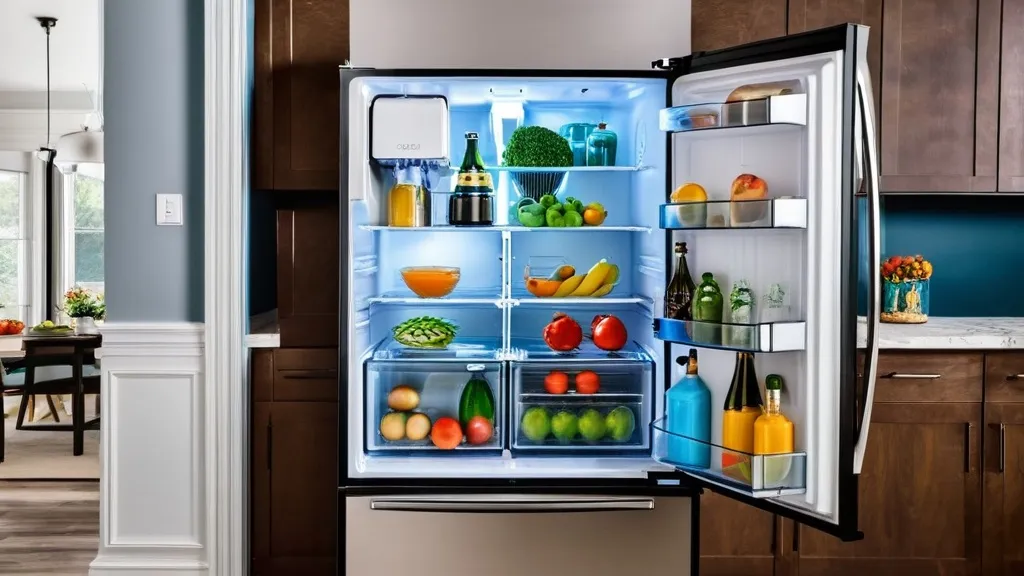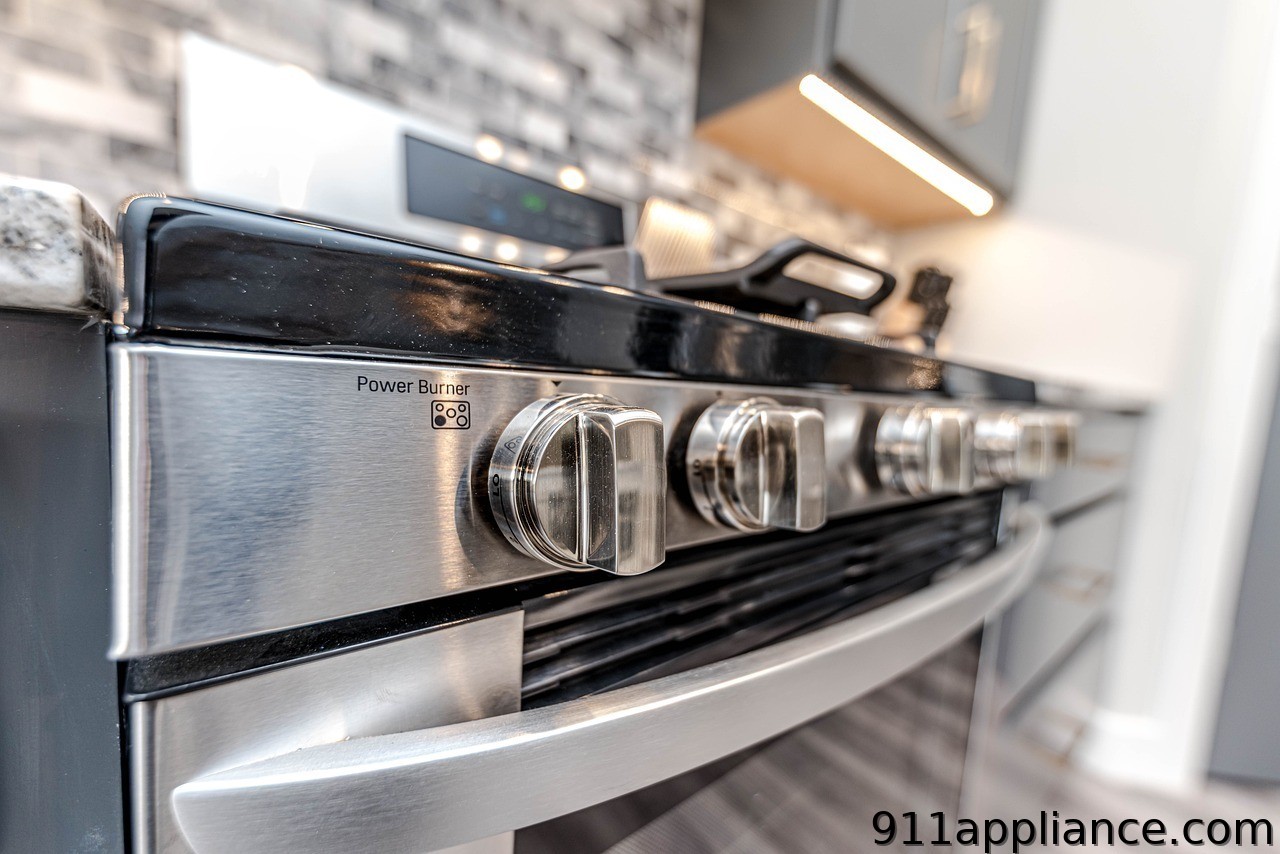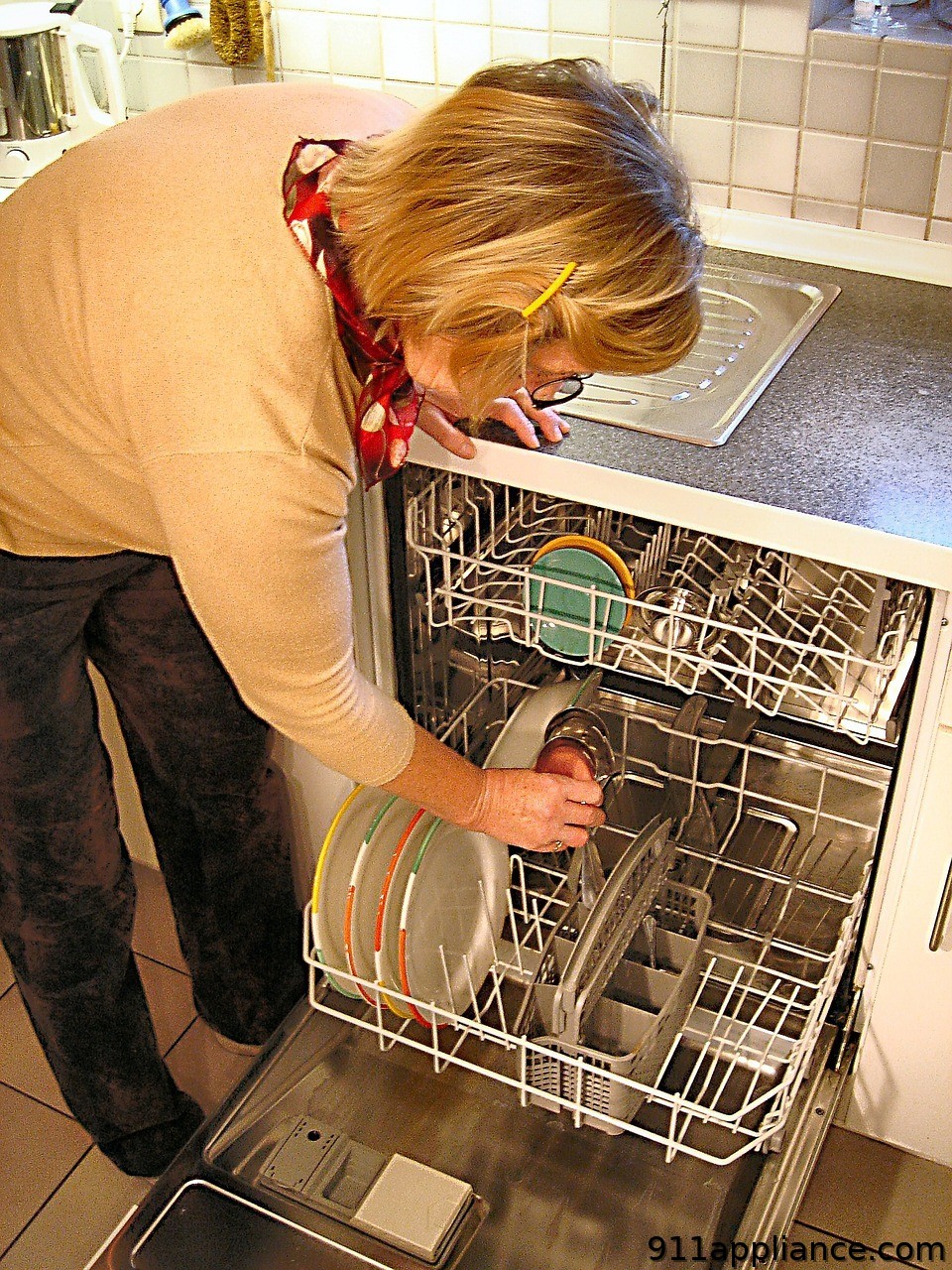Yes, appliance repair is considered a trade. It involves hands-on skills and technical knowledge to fix various appliances.
Table of Contents
- The Essence Of Appliance Repair
- Defining The Craft
- Appliance Repair Person: Role And Skills
- Comparing Trades And Crafts
- Trade Vs. Craft: A Comparison
- Where Does Appliance Repair Fit In?
- Educational Pathways
- Required Qualifications
- Certification: Nastec And Beyond
- Licensing Requirements
- Understanding State Regulations
- License To Operate In Texas
- Business Aspects Of Appliance Repair
- Starting An Appliance Repair Business
- Profitability And Market Demand
- Career Longevity
- Appliance Repair As A Lifelong Career
- Physical Demands And Sustainability
- Income Potential
- Earning Capacity Of Technicians
- Running A Profitable Repair Shop
- Industry Evolution
- Technological Advancements
- Future Prospects Of The Appliance Repair Industry
- Frequently Asked Questions
- What Is The Business Description Of Appliance Repair?
- Do I Need A License To Repair Appliances In Texas?
- What Is An Appliance Repair Person?
- What Is The Meaning Of Appliance Repair Service?
- Conclusion
Appliance repair is a skilled trade that demands a mix of technical expertise and practical problem-solving skills. Technicians in this field work on a variety of household and commercial appliances, such as refrigerators, dishwashers, and washing machines. This career path requires both training and experience, often obtained through vocational programs or apprenticeships.
The demand for appliance repair services remains consistent, driven by the need to maintain and extend the life of essential household devices. As a trade, it offers a stable and potentially lucrative career for those who enjoy working with their hands and solving mechanical issues.
The Essence Of Appliance Repair
Appliance repair is a unique trade that combines technical skills with problem-solving abilities. This craft demands a deep understanding of various household devices and the ability to diagnose and fix issues efficiently. Let’s explore the core aspects of this fascinating field. Appliance repair experts possess a wealth of knowledge about the inner workings of appliances, from refrigerators to washing machines. Their skills are often validated through appliance repair expert reviews, which highlight their proficiency in troubleshooting and providing effective solutions. This not only enhances their credibility but also helps consumers make informed decisions when selecting a professional for their repair needs.
Defining The Craft
Appliance repair involves maintaining, troubleshooting, and fixing common household appliances. These include microwaves, dishwashers, refrigerators, and cooktops. Technicians in this trade must be familiar with a wide range of brands and models. They need to understand each appliance’s mechanical and electrical components to provide effective solutions.
Professionals in this field often work both in workshops and on-site at customers’ homes. They must adapt their techniques based on the appliance’s condition and the environment in which they are working.
Appliance Repair Person: Role And Skills
The role of an appliance repair person is multifaceted. They must identify issues quickly and accurately. Key skills include:
- Technical Proficiency: Understanding the mechanics and electronics of various appliances.
- Problem-Solving: Diagnosing issues and finding the best solutions.
- Customer Service: Communicating effectively with clients and providing excellent service.
- Physical Dexterity: Handling tools and parts with precision.
These professionals also need to stay updated with the latest technologies and repair techniques. Continuous learning is crucial in this ever-evolving field.
| Skill | Description |
|---|---|
| Technical Proficiency | Understanding the mechanics and electronics of various appliances |
| Problem-Solving | Diagnosing issues and finding the best solutions |
| Customer Service | Communicating effectively with clients and providing excellent service |
| Physical Dexterity | Handling tools and parts with precision |
Becoming an appliance repair person requires dedication and a passion for fixing things. It’s a rewarding career for those who enjoy working with their hands and solving complex problems.

Comparing Trades And Crafts
The debate between trades and crafts is long-standing. Both involve specialized skills and knowledge. But how do they differ? And where does appliance repair fit into this spectrum? Let’s delve into these questions.
Trade Vs. Craft: A Comparison
Understanding the differences between trades and crafts helps in classifying appliance repair.
| Aspect | Trade | Craft |
|---|---|---|
| Skills | Technical and practical | Artistic and manual |
| Training | Formal apprenticeships and certifications | Informal learning and mentorship |
| Output | Functional and reliable | Unique and artistic |
| Examples | Electricians, plumbers | Potters, weavers |
Where Does Appliance Repair Fit In?
Appliance repair involves technical skills and practical knowledge. Technicians diagnose and fix household appliances. They require formal training and often gain certifications. This aligns appliance repair with trades.
Unlike crafts, appliance repair focuses on functionality and reliability. The goal is to restore appliances to working condition. Technicians use tools and diagnostic equipment, much like electricians or plumbers.
Therefore, appliance repair is best classified as a trade. It involves technical expertise and practical problem-solving. This makes it a vital profession in modern homes.
Educational Pathways
Embarking on a career in appliance repair can be a rewarding journey. Understanding the educational pathways is key. Whether you are a high school graduate or seeking a career change, there are various routes to becoming a skilled appliance repair technician.
Required Qualifications
Basic qualifications are essential. A high school diploma or GED is typically required. Courses in mathematics, physics, and electronics are beneficial. Practical experience is crucial. Many technicians start as assistants or apprentices.
| Qualification | Details |
|---|---|
| High School Diploma or GED | Basic education requirement |
| Courses in Math and Physics | Helpful for technical understanding |
| Apprenticeship | Hands-on experience under supervision |
Certification: Nastec And Beyond
Certification enhances credibility and skills. The National Appliance Service Technician Certification (NASTeC) is a recognized credential. It covers core skills and specific appliance categories.
- NASTeC Core Exam: Tests basic knowledge and skills
- NASTeC Category Exams: Specialize in specific appliances
Beyond NASTeC, other certifications are available. The Professional Service Association (PSA) offers a Certified Appliance Professional (CAP) program. Manufacturer-specific certifications can also be valuable. These certifications ensure technicians stay current with technology and techniques.
Licensing Requirements
Entering the field of appliance repair requires understanding the necessary licensing requirements. These requirements ensure technicians have the skills and knowledge to perform repairs safely and effectively. Licensing varies by state, and this section will explore these regulations, focusing on Texas.
Understanding State Regulations
Each state has its own regulations for appliance repair licensing. Some states require a general contractor’s license, while others have specific licenses for appliance repair. These regulations often include:
- Training and education requirements
- Passing a licensing exam
- Continuing education
- Insurance and bonding
Knowing your state’s specific requirements is crucial. It ensures you meet all legal standards and provide quality service to your clients.
License To Operate In Texas
In Texas, appliance repair technicians must obtain a specific license. The Texas Department of Licensing and Regulation (TDLR) handles the licensing process.
| License Type | Requirements |
|---|---|
| Residential Appliance Installer License |
|
Once these requirements are met, applicants can apply for their license through the TDLR website. Meeting these requirements ensures compliance with Texas regulations and high service standards.
Business Aspects Of Appliance Repair
Appliance repair is not only a valuable trade but also a lucrative business opportunity. The field offers both stability and growth potential, making it attractive for entrepreneurs. Understanding the business aspects can help you decide if this path is right for you.
Starting An Appliance Repair Business
Starting an appliance repair business involves several steps. Firstly, you need to obtain the necessary licenses and certifications. These vary by location, so check local regulations.
Next, invest in essential tools and equipment. Quality tools ensure efficient and effective repairs. Consider the following items:
- Screwdrivers and wrenches
- Multimeters
- Socket sets
- Diagnostic tools
Marketing your business is crucial. Use social media, local advertisements, and word-of-mouth to attract customers. Create a professional website to showcase your services and customer testimonials.
Profitability And Market Demand
The profitability of an appliance repair business depends on market demand and operational efficiency. People rely heavily on appliances, so the demand for repair services remains high.
According to industry data, the average appliance repair technician earns a significant income. Here is a simple breakdown:
| Service Type | Average Cost |
|---|---|
| Refrigerator Repair | $200 |
| Washing Machine Repair | $150 |
| Dishwasher Repair | $120 |
Higher demand often leads to more jobs and increased earnings. Efficient operations can also boost profitability. Here are some tips:
- Offer quick and reliable service.
- Maintain a well-organized inventory.
- Use technology for scheduling and tracking.
Customer satisfaction is key. Happy customers lead to repeat business and referrals. Always strive to exceed customer expectations.

Career Longevity
Choosing a career with long-term stability is crucial. Appliance repair offers a unique blend of job security and personal fulfillment. Let’s explore the longevity of this trade.
Appliance Repair As A Lifelong Career
Many tradespeople find appliance repair a rewarding lifelong career. The demand for skilled technicians remains high. As long as households use appliances, repair services will be essential. This constant need provides job security.
Moreover, appliance repair skills are transferable. Technicians can work in various settings, from homes to businesses. This flexibility keeps the job interesting and varied.
Physical Demands And Sustainability
Unlike some trades, appliance repair is not overly taxing on the body. The job involves troubleshooting, replacing parts, and ensuring appliances work efficiently. These tasks are less physically demanding compared to heavy construction work.
Technicians often work in comfortable indoor environments. This reduces the risks associated with extreme weather conditions. Therefore, the job is more sustainable over the long term.
Here’s a breakdown of the physical demands and their sustainability:
| Task | Physical Demand | Impact on Longevity |
|---|---|---|
| Troubleshooting | Low | Minimal physical strain |
| Replacing parts | Moderate | Manageable with proper tools |
| Installation | Moderate | Requires some lifting |
Even with moderate physical demands, proper training and tools can minimize strain. This ensures technicians can sustain their careers without significant physical wear and tear.
Income Potential
The appliance repair industry offers promising income potential. Both technicians and shop owners can earn good money. This trade provides a stable and lucrative career path.
Earning Capacity Of Technicians
Appliance repair technicians have significant earning potential. They can work for companies or independently. Here is a breakdown of their earnings:
| Experience Level | Average Annual Salary |
|---|---|
| Entry-Level | $30,000 – $40,000 |
| Mid-Career | $40,000 – $55,000 |
| Experienced | $55,000 – $75,000 |
Technicians can increase their earnings by gaining certifications. Specializing in high-demand appliances also helps. Customer reviews and referrals boost income.
Running A Profitable Repair Shop
Opening a repair shop can be very profitable. Here are key factors to ensure profitability:
- Location: Choose a high-traffic area.
- Services Offered: Provide diverse repair services.
- Customer Service: Build a loyal customer base.
- Marketing: Invest in online and offline advertising.
Managing costs is crucial. Keep overheads low and streamline operations. Hiring skilled technicians also adds value. Here is a simple cost and profit analysis:
| Monthly Expenses | Estimated Costs |
|---|---|
| Rent | $1,000 |
| Utilities | $300 |
| Staff Salaries | $3,000 |
| Supplies | $500 |
| Marketing | $200 |
With effective management, a shop can generate revenues exceeding $10,000 monthly. This results in a good profit margin.
Industry Evolution
The appliance repair industry has undergone significant changes over the years. From basic mechanical fixes to complex electronic repairs, the field has evolved to meet modern demands. This transformation has been driven by several factors, including technology and changing consumer needs.
Technological Advancements
Technological advancements have revolutionized the appliance repair industry. Today’s technicians need to understand smart appliances, IoT devices, and advanced diagnostics. This requires continuous learning and adaptation.
Modern appliances are more complex, integrating features like Wi-Fi connectivity and AI. This complexity demands a higher level of expertise and specialized tools. Below is a table showing the evolution of key appliance technologies:
| Era | Key Technologies |
|---|---|
| 1980s | Basic mechanical systems |
| 1990s | Introduction of electronic controls |
| 2000s | Digital interfaces and sensors |
| 2010s | Smart technology and IoT integration |
| 2020s | AI and machine learning in appliances |
Future Prospects Of The Appliance Repair Industry
The future of the appliance repair industry looks promising. With the rise of smart homes, the demand for skilled technicians will increase. These professionals will need to keep up with rapid technological changes.
Emerging trends suggest a shift towards eco-friendly and energy-efficient appliances. This will create new opportunities for repair specialists to focus on sustainability. The industry may also see growth in remote diagnostics and virtual repair services.
Here are some key future prospects:
- Increased demand for smart appliance repairs
- Focus on eco-friendly and sustainable solutions
- Growth in remote and virtual repair services
- Continuous need for advanced technical training
Frequently Asked Questions
What Is The Business Description Of Appliance Repair?
An appliance repair business installs, repairs, maintains, and removes household appliances like microwaves, dishwashers, and refrigerators.
Do I Need A License To Repair Appliances In Texas?
Yes, you need a license to repair appliances in Texas.
What Is An Appliance Repair Person?
An appliance repair person fixes, maintains, and installs household appliances like refrigerators, washers, and ovens. They ensure appliances function efficiently.
What Is The Meaning Of Appliance Repair Service?
Appliance repair service refers to the maintenance, repair, or replacement of household appliances like refrigerators, dishwashers, and ovens.
Conclusion
Appliance repair is undoubtedly a valuable trade, combining technical skills and hands-on work. It offers steady demand and job security. For those with mechanical aptitude and a knack for problem-solving, it presents a rewarding career path. Whether starting a business or joining a company, appliance repair can be both fulfilling and lucrative.



